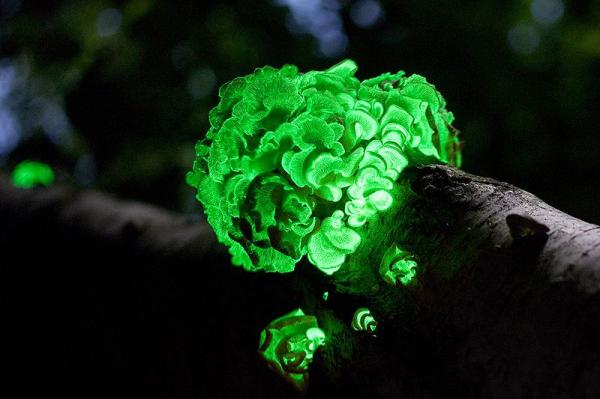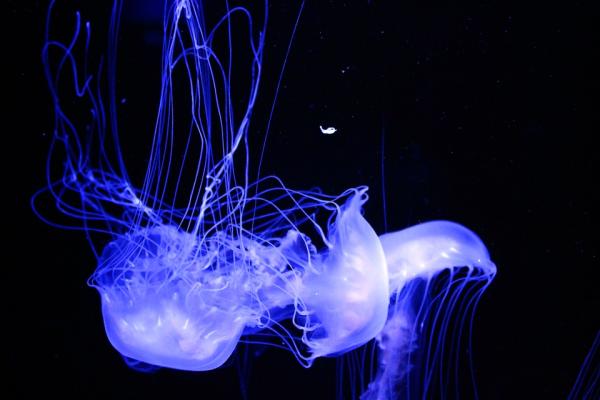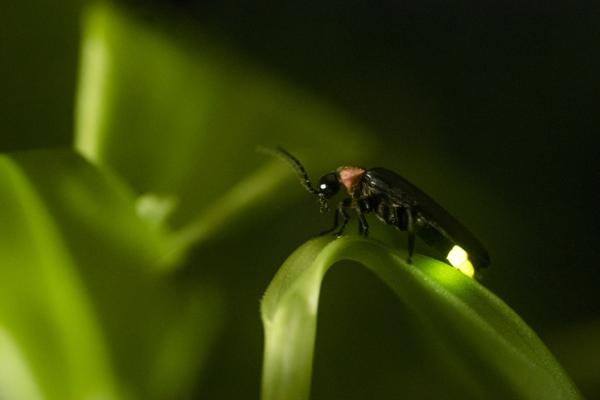Did you know that one of the Earth’s most mesmerizing light sources comes not from stars or electricity, but from living organisms themselves? This phenomenon is called bioluminescence, and it is one of the most spectacular natural occurrences observed in both land and marine environments.

Bioluminescence is the production of light by living organisms through a chemical reaction involving oxygen and a molecule called luciferin. When luciferin reacts with oxygen, it emits photons (light). The enzyme luciferase catalyzes this reaction, making the light emission possible.
Over 80% of bioluminescent species live in the ocean, especially in deep or dark waters, where light serves various survival functions:
Predator evasion
Prey attraction
Mating signals
Camouflage (counter-illumination)
Startling enemies
Even the slightest movement or contact in water can trigger glowing flashes, creating surreal, glowing trails.

Fireflies (Family Lampyridae): Use glowing abdomens to attract mates on summer nights;
New Zealand’s glowworm larvae (Arachnocampa luminosa): Found in caves;
Motyxia millipedes: Emit light as a warning signal;
Mycena lucentipes mushrooms: Small bioluminescent fungi in Brazilian and Puerto Rican rainforests;
Other glowing plants and fungi also exist and emit faint lights in darkness.
Ostracods: Tiny crustaceans emitting flashes to attract mates;
Dinoflagellates (e.g., Pyrodinium bahamense): Light up when disturbed;
“Green bombers”: Deep-sea worms that release glowing sacs when threatened;
Jellyfish (Aequorea victoria) & comb jellies (Mnemiopsis leidyi): Emit light via photoproteins;
Firefly squid (Watasenia scintillans) & vampire squid (Vampyroteuthis infernalis): Use light to lure prey;
Bioluminescent shrimp (Sergestes similis): Can adjust brightness based on ambient light;
Deep-sea dragonfish (Family Stomiidae): Emit rare red light, unlike the typical green or blue;
Radiolarians: Colonial marine invertebrates living on siliceous skeletons;
Luminous bacteria: Sometimes symbiotically used by fish as glowing lures.

When large populations of light-producing organisms move in unison, the ocean seems to shimmer with stars. Places to witness this magical phenomenon include:
Holbox Island (Mexico): Along the Caribbean coast of the Yucatán Peninsula;
Puntarenitas Beach (Costa Rica): Sparkling blue waters after dusk;
Vieques Island (Puerto Rico): Famous bioluminescent bays;
Koh Rong (Cambodia): Glow-in-the-dark beaches;
Toyama Bay (Honshu, Japan): Firefly squid displays;
Waitomo Caves (New Zealand): Lit by bioluminescent glowworms.
animal tags: bioluminescence
We created this article in conjunction with AI technology, then made sure it was fact-checked and edited by a Animals Top editor.